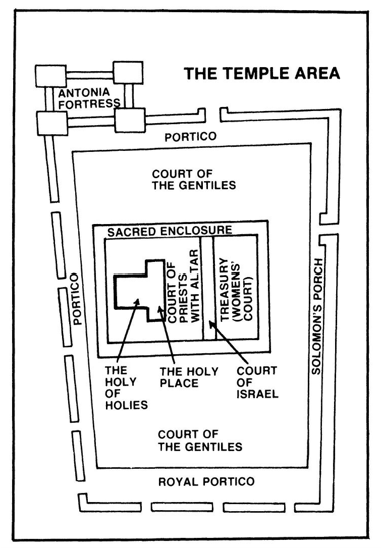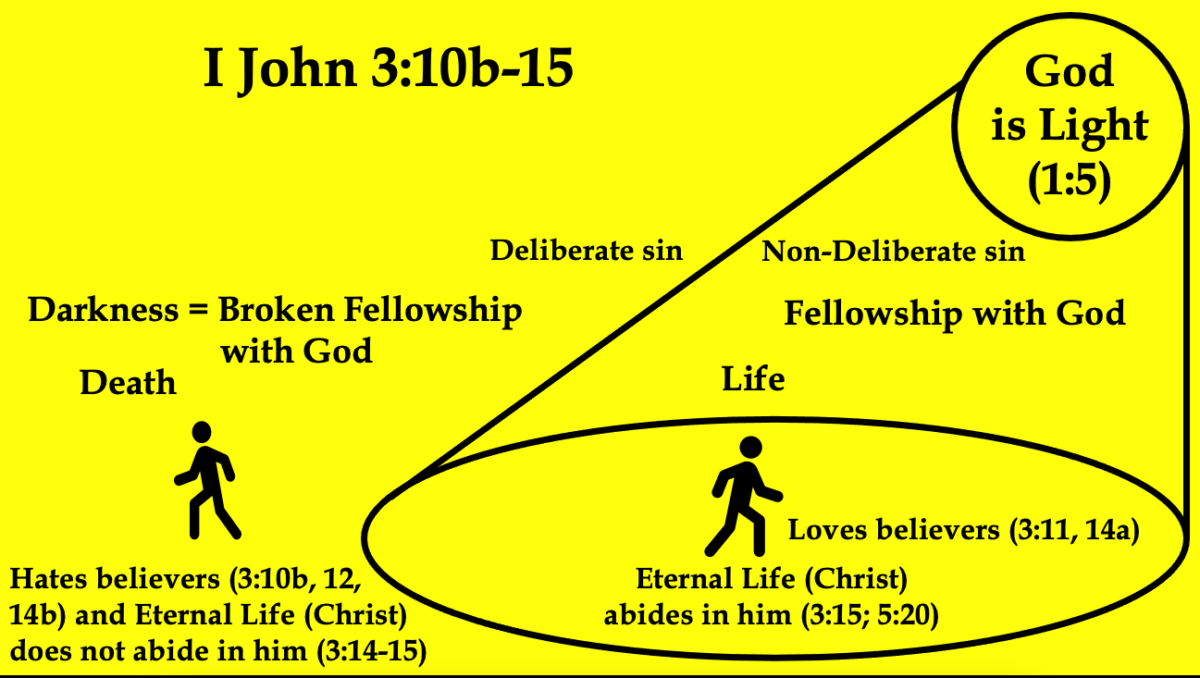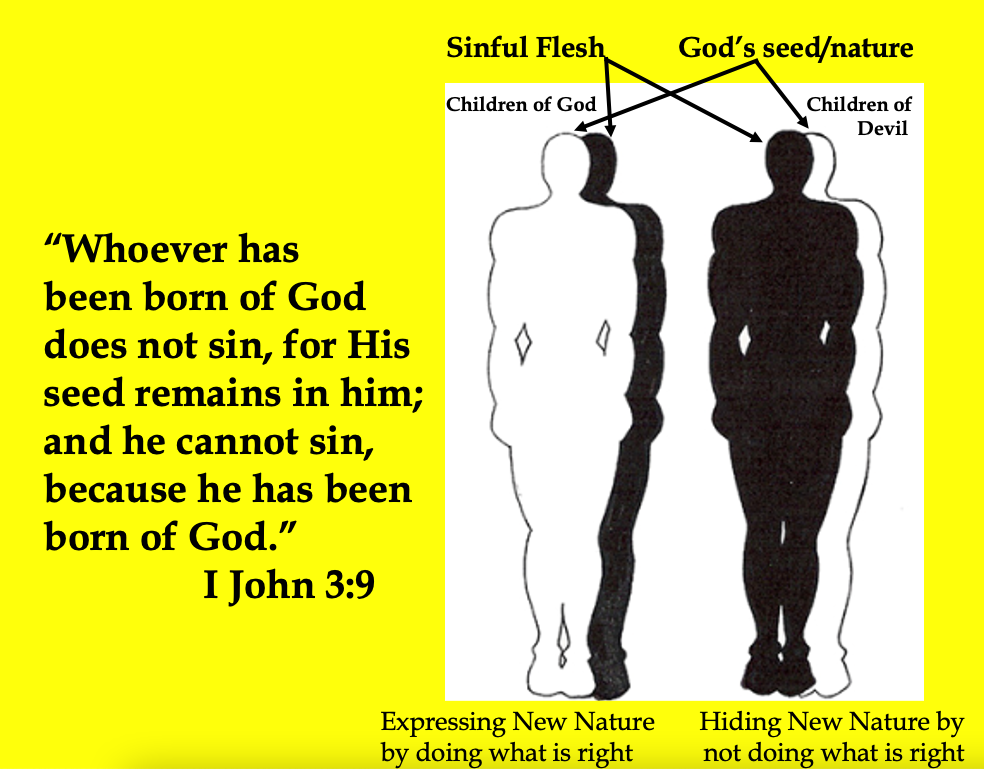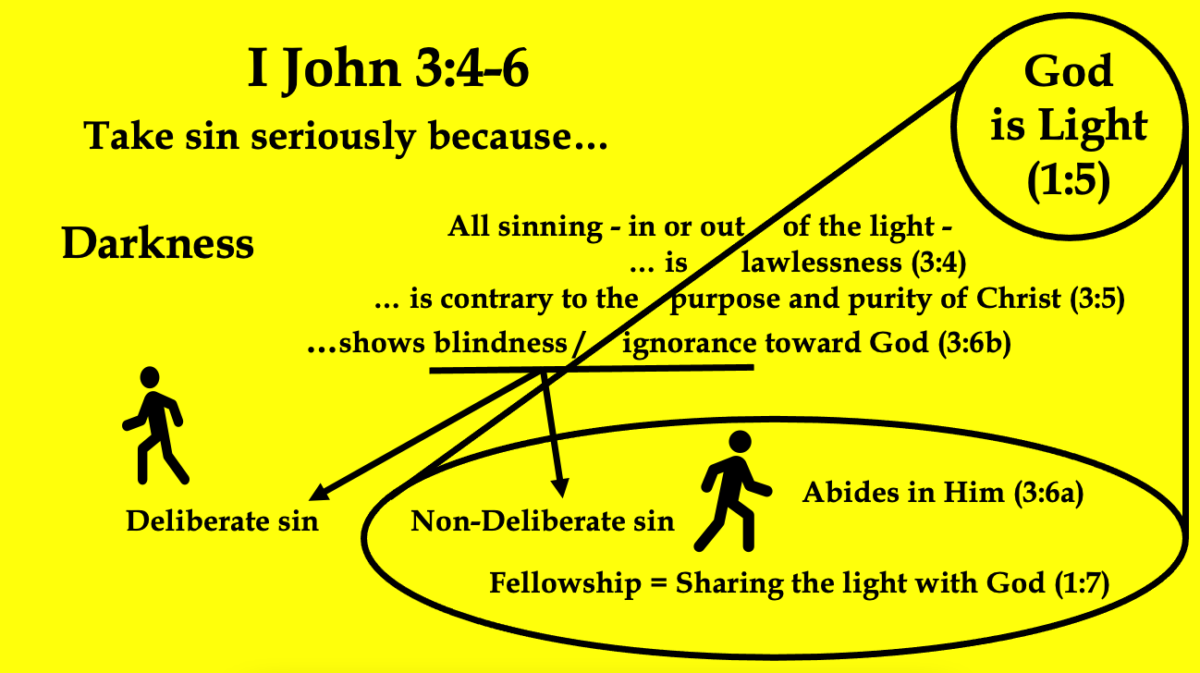“ When He had made a whip of cords, He drove them all out of the temple, with the sheep and the oxen, and poured out the changers’ money and overturned the tables. ” John 2:15
Imagine you pull into the church parking lot on Sunday morning. Your heart is full of anticipation. Your cup is empty, and you are ready to fill it. You are ready to enter the place of worship and join your brothers and sisters in joyous worship. You look forward to singing the hymns of the faith. You feel the need to commune in prayer. You long to feed upon the unchanging Word of God. You are eager to share with the family of God.
But as you pull up, the parking lot is crammed full. You can’t even find a place to park. You won’t be denied. You park down the street and walk a few blocks. But as you try to enter the building there is a long line. There are tables set up at every foyer entrance. People are writing checks and putting down cash on the tables and getting tokens in return to place in the offering plates. You finally make it to the table and are told that you need the new church currency to make an offering. So, you place a $20 bill on the table and get a $10 church coin in return. You finally make it through the entrance, only to find the foyer very congested. Booths are set up all throughout the foyer. People are selling hymn books at one booth. “Get your song books here. You can’t sing without your official church song book. Rent yours for only $19.95.” Another booth has people buying and selling Bibles. The sign reads “Official Church Bible. Get yours for only $29.99.” At other booths, you notice merchants selling offering envelopes, notebooks for sermon notes, and refreshments.
There is so much commotion and commerce going on that you throw your hands up in disgust realizing you’ll never make it into the sanctuary to worship. If you can imagine an experience like this and how frustrating it would be, then you can understand what it was like inside the temple courtyard during the time of Passover when Jesus came to worship. John records this event for us in John 2:12-25. This temple cleansing was near the beginning of Jesus public ministry. The second temple cleansing was near the end of His public ministry and was one of the reasons for His death (cf. Matt. 21:12-13; Mark 11:15-16; Luke 19:45-46). [1]
You may recall that in John 1:14 we saw that Jesus was “full of grace and truth.” He was the perfect balance of grace and truth. Last week we saw Jesus express His grace by transforming water into wine at a wedding banquet in Cana of Galilee. He replaced something old with something new. New wine replaced old water. Today we will see His truth at work replacing a dirty temple with a clean one. From this we will discover HOW WE CAN EXPERIENCING JESUS’ CLEANSING TRUTH IN OUR LIVES. The first way is seen in 2:12-17.

2:12: Jesus went “down” from Cana because of the decline in land elevation “to Capernaum” on the northwest shore of the Sea of Galilee, [1] about eighteen miles northeast of Cana [2] (see above map). Jesus would adopt “Capernaum” as His ministry based in Galilee (cf. Matt. 4:13; Mark 1:21; 2:1) and move there after His rejection at Nazareth (cf. Matt. 4:12-14). Jesus performed some of His greatest miracles at Capernaum (John 4:46-54; cf. Mark 2:1-12) and taught in its synagogue [3] (John 6:22-59; cf. Mark 1:21-28; Luke 4:31-37).
The purpose of this trip to Capernaum is not stated by the apostle John, but it seems to be for a time of rest with “His mother, His brothers, and His disciples.” The Bible tells us that Jesus had physical “brothers” (John 2:12; 7:1-10; cf. Matt. 12:46-47; 13:55; Mark 3:32; 6:3; Luke 8:19-20) and “sisters” (Matt. 13:56; Mark 6:3) which clearly indicates that Joseph and Mary had other children after Jesus’ birth. [5] The idea of Mary’s perpetual virginity appeared later in church history [6] and cannot be substantiated by Scripture.
Evidently this trip was only for a short stay in Capernaum since John wrote that “they did not stay there many days” (2:12b). As important as time with His family and friends was, Jesus did not want to miss going up to Jerusalem to worship God during the Passover.
2:13: The “Passover” was an annual Jewish festival celebrating God’s deliverance of Israel from slavery in Egypt, when the angel of death passed over every home where the blood of a lamb was applied to the doorposts of the home (Exod. 12-13). It also initiated the Feast of Unleavened Bread, so the entire celebration lasted over a week. Jews from all over the world came to Jerusalem to meet with God and be obedient to His commands.
This is John’s first of three explicit references to the “Passover” in his gospel (2:13; 6:4; 12:1). [7] This Passover was in the year A.D. 30 on Friday, April 7, at the beginning of Christ’s public ministry. [8] John is the only gospel writer to mention the cleansing of the temple at the beginning of Jesus’ ministry. The Synoptic gospel writers refer to Christ’s second cleansing of the temple near the end of His public ministry during the week in which He was crucified (Matt. 21:12-13; Mark 11:15-17; Luke 19:45-46). [9]
When the apostle states that “Jesus went up to Jerusalem,” it reflects the ascent in elevation as one travels from the surrounding regions to reach the city at 2,424 feet elevation. [10] While Jesus tried to make His way into the temple, He discovered that it had become a place of peddling instead of a place of prayer.
2:14: The word translated “temple” (heiron) refers to the outer “court of the Gentiles” surrounding the temple building (naos) where the Holy of Holies was located [11] (see temple diagram below). In this outer court surrounding the temple, Jesus “found… those who sold oxen and sheep and doves, and the money changers doing business.” Jesus “found” the misuse of the temple which indicates He was looking around and witnessing the peoples’ mistreatment of His holy temple.

Israel’s“priesthood was completely corrupt, and the temple had been polluted by the priests’ greed. The courts of the complex had become a mixture of flea market and stock market. This so-called ‘Annas Bazaar’ was named for Annas, a godfather-like figure who once held the office of high priest but had been deposed by the Roman government more than fifteen years earlier. Since that time, he ruled through a successive series of puppet priests, most of them his sons, and continued to run a well-established con game on a grand scale. Put bluntly, he was corrupt to the core.
“Throughout the year, but especially at Passover, all Jewish males were expected to visit the temple, to pay the tax required by the Law of Moses, and to sacrifice an animal. On Passover, the sacrifice was to be a lamb, and as always, it had to be without blemish or defect. Moreover, the tax had to be paid in shekels, not in foreign currency, which bore images forbidden by the Law.
“Annas and his cronies set up stations in the temple courts for the purpose of exchanging foreign currency for shekels—for an exorbitant fee, of course. Then, he supplied sacrificial animals, for which he charged top price. If someone brought his own animal, an inspector would judge it unfit and offer another in trade… for additional cash. Undoubtedly, the inferior animal would become some other man’s “superior” sacrifice later on. What a racket!” [12]
Let’s say you come to Jerusalem to worship the Lord. You bring an animal to sacrifice to the Lord, because that’s the way you worshiped God then. Your children had cared for this animal for months and he had become a cherished pet – though he was about to become the family’s sacrifice. You go into the temple courtyard and there is a “booth of approval,” manned by one of the strictest of the Pharisees. Before you could offer your family’s lamb for sacrifice it had to be approved. But this inspector finds defects in your lamb. “Hey, we can’t accept this animal as a sacrifice – it has too many things wrong with it. You need to go to the vender’s booth over there. There you can buy a lamb pre-approved for sacrifice.” Think of how your kids feel. “What about our lamb? Doesn’t God care about that? How do we get to God?” So, you go over to the vendor’s booth and pay ten times the real value for a pre-approved lamb. (Just like when you go to the theater and a 50-cent bag of popcorn costs you $4.) So, you get your money out to buy one of his animals.
And the vendor says to you, “Wait a minute. We can’t accept that currency. You need to exchange your coins for temple money over here at the moneychangers’ table and that will be an extra fee.” So, you go up to the moneychangers’ table and give them a silver dollar and they only give you 25 cents of temple money. Just like if you went to a pawn shop with a $1000-dollar ring and the broker would only offer you $100. Wanting to show your love for God you pay all these fees. And by the end of the day, you didn’t know if you were pleasing God or just pleasing the religious leaders. Meeting with God seemed too far beyond your reach.
This scene is what Jesus saw when He entered the temple courts. How does our Lord respond? 2:15: Christ engaged His anger both physically and verbally at the injustice. He was not having a bad day. This was a premeditated act of His will. How do we know this? John tells us Christ gets a bunch of “cords” and takes the time to make “a whip.” We don’t know how long it took Jesus to make the whip, maybe minutes or hours, but He had already decided to use that whip when He entered His temple to cleanse it.
Christ, the Son of the Owner of the temple, took full responsibility to cleanse His Father’s temple. He could have made the moneychangers and sellers of oxen, sheep, and doves clean up their own mess, but He didn’t. Jesus cleansed the temple. He “overturned” the moneychangers’ “tables” and “drove them all out of the temple,” including animals and people. This is not the soft spoken, gentle Savior that so many of us often think Jesus was. Here we find Jesus angry and aggressive as He cleanses the temple of corruption. I mean it must have been like being in one of those villages in Spain when they let the bulls run loose in the streets. Cows and sheep are running loose. People are yelling and screaming, “Help! Out of the way! The Carpenter has gone crazy!”
“The awesome power of Jesus is evident. Surely crooked merchants must have objected to this treatment. Yet there is no hint that any of them tried to stop Him. Jesus either sovereignly hindered opposition, or He manifested such righteous indignation that all were too afraid and amazed to try to stop Him.” [13]
I want to take a moment to talk about the emotion of anger. So often we can skip over these verses and not address this issue. Anger in and of itself is not wrong. In the Bible, we see that God experienced anger (cf. Exod. 4:14; Num. 11:10; Deut. 7:4; Mark 3:5; John 2:13-16; 3:36; 11:33, 38; Rom. 1:18; 12:19).
I cannot remember hearing a sermon that addressed how to deal with anger in our Christian lives. Thankfully, God has revealed in the Bible how to resolve our anger. The apostle Paul quotes the phrase “Be angry and do not sin” (Ps. 4:4a) in Ephesians 4:26 when he is talking to believers about not grieving the Holy Spirit with their communications toward one another (cf. Ephes. 4:25-32). Psalm 4:4-5 teach us some important principles for dealing with our anger:
1. ADMIT AND FEEL YOUR ANGER (“Be angry and do not sin” – 4:4a). The feeling of anger is not wrong in and of itself. Even God feels anger (cf. Exod. 4:14; Num. 11:10; Deut. 7:4; Mark 3:5; John 2:13-16; 3:36; Rom. 1:18; 12:19; Col. 3:6; Heb. 3:11; 4:3; Rev. 6:16; 19:15; et. al). What we do with our anger can be sinful. When we admit our anger, we begin to take control of it. It is important to use “I feel…” statements which take responsibility for our own anger. For example: “I feel angry when you…” But spiritual perfectionism says, “I’m not angry.” Shame-based statements use the word “You.” For example: “You make me feel so angry!” The last two examples do not honor what God is saying here – “Be angry and do not sin,” because they do not acknowledge or take responsibility for one’s own anger.
2. TALK TO THE LORD UNTIL YOU CAN BE STILL (“Meditate [talk] within your heart on your bed, and be still” – 4:4b; cf. 4:3). As we talk to the Lord (4:3), He can help us identify the source of our anger – Is it selfishness or perfectionism? Or is it because we have been wronged?
3. DO WHAT IS RIGHT WHICH INCLUDES FORGIVING OTHERS AND YOURSELF (“Offer the sacrifices of righteousness” – 4:5a). Sacrifices were offered in the Old Testament as a means of forgiveness (cf. Heb. 9:22). As God shows us the source of our anger, we can seek forgiveness if we were being selfish or perfectionistic (I John 1:9), or we can extend forgiveness to those who have wronged us (Ephes. 4:32).
4. TRUST THE LORD WITH THE SITUATION (“And put your trust in the Lord” – 4:5b). Many believers struggle with the first two steps the most and skip right over them to forgive and trust the Lord without acknowledging or processing their feelings. But if we do not admit our anger or hurt, and turn it over to the Lord, it is very difficult to forgive “from the heart” (cf. Matt. 18:35).
Somehow Christians are not comfortable admitting their deep hurt and anger. Perhaps it is due to the perfectionism that is taught in churches today. But if we are to be more like Jesus Christ, we can learn to admit our anger and release it to God, so He can use it the way He intended – to accomplish His righteousness (cf. Mark 3:5; John 2:13-16; Jas.1:19-20). If we refuse to address our anger God’s way, it will result in more brokenness in the body of Christ because we are giving the devil an opportunity to lead us into greater sin (cf. Ephes. 4:26-27).
For some of us, we may not be able to resolve our anger because it is attached to unresolved trauma or abuse in our past. In such cases, it may be helpful to do the exercise in Appendix 4 – Cleansing the Temple and Forgiveness Exercise based on Jesus’ cleansing of the temple in John 2:13-22. *** Note: Please do not substitute this exercise for professional Christian counseling. In fact, it is recommended that you are in counseling before doing this exercise.
2:16: When Jesus sees “those who sold doves,” He points the finger and identifies the sin that defiled His “Father’s” temple, saying, “Take these things away. Do not make My Father’s house a house of merchandise!” The command, “Take… away,” uses the imperative (arate) that is from the same verb (airō) used in John 1:29 when John the Baptist said, “Behold, the Lamb of God Who takes away [airō] the sin of the world.”
“By telling the sellers to ‘take these things away’ Jesus was figuratively taking away the sin of the world in an experiential sense. In the eternal kingdom Jesus will have taken it away completely. One day the zeal Jesus demonstrated will be a universal zeal that all subjects of the kingdom will have.
“When Jesus removed the sacrificial animals from the temple, He pictured a coming day when there would be no more need for such sacrifices (1:29; Heb 10:10, 14).” [14]
The temple was designed by God to be a place where people could meet with God. But it had become a place where people were abused in the name of God! The tragic truth was this had become the least likely place where you could meet with the Lord. Jesus must remove the religious pretenders before He can truly minister to those who need Him.
For many people today, this is still a reality. There are people today who long to meet with God in a place of worship, but when they go, all too often they discover a system that gives them more work to do to be “close” to God. The problem with this is they never know if they are pleasing God or the religious leaders. You say to yourself, “Something feels wrong with having to follow all these rules – but it is God’s House. It says so on the sign.” And they get worn out or they leave and give up on God altogether.
Please understand, that if you came out of a church or religion where you had to pay and pay and pay some more to get close to God, you need to encounter the true God and eternal life, Jesus Christ (I John 5:20). Jesus fights for you just like He did back then. And He wants to heal your hurts and lighten your load. He wants to make it so easy for you to come (just as you are) and meet with Him. A church with Jesus Christ as the Head will not charge you to meet with God. It is free just like salvation. Christ does not want anything in His church to make it difficult for people to worship the Lord…to draw closer to Him.
Jesus warns all of us who are spiritual leaders: Woe to you if you shut off the kingdom of heaven from men. We need to ask ourselves are we door-openers or door closers? Are we making it difficult for people to come to Christ or simple? Sometimes the Lord must remove religious pretenders before true worship can take place… before Jesus can truly minister His grace to those in need. I truly believe when Jesus is free to minister His grace in a church – look out! It will explode with people who need His healing touch.
Hence, the first way to experience Jesus’ cleansing truth is to RELY ON CHRIST TO CLEANSE YOUR LIFE (2:12-16) from sin and corruption. According to the Bible, where is the temple of God located today? The apostle Paul answers this question when writing to Christians in the city of Corinth, “Do you not know that you are the temple of God and that the Spirit of God dwells in you?” (I Cor. 3:16). The temple of God is no longer located in Jerusalem. It is now located in every believer in Jesus Christ. The temple is located in our physical bodies. In the Old Testament, God’s temple was a sacred place. It was a place where God Himself resided and where people came to worship Him. Today, God’s temple is still a sacred place where God dwells.
The truth is all of us are like those religious leaders who were robbing the people of their money. All of us are thieves. But you may say, “Wait a minute pastor. I’m not perfect, but I am no thief.” We probably all agree that we are not perfect, but are we all thieves? Maybe we wouldn’t break into our neighbor’s home to steal his stereo, but we rob him of his reputation when we gossip about him. Maybe you’ve never stolen a woman’s virginity, but you rob her future husband of the gratification that God intended only him to have when you lust after her. You don’t have to steal money to be a thief. If Jesus came today and looked at the temple of God in you, would He have the same reaction as He did in Jerusalem with the corrupt priests and merchants? Would He get angry at what He saw, or would He be pleased with what He sees in your life? Friends, if we have pollution in God’s temple, then it’s time for us to allow Jesus to clean it out and stop trying to hide and cover up our sins.
One day a man purchased a white mouse to use as food for his pet snake. He dropped the mouse into the snake’s glass cage, where the snake was sleeping in a bed of sawdust. What did the terrified mouse do? He quickly set to work covering the snake with sawdust chips until it was completely buried. With that, the mouse apparently thought he had solved his problem. Listen, no matter how hard we try to hide or deny our sins, it is futile. Sin will eventually awake from its sleep and shake off its cover and eat us alive.
So how do we allow Jesus to cleanse our lives from sin and corruption? If you are not a Christian, you must first believe or trust in Christ alone to forgive your sins. The Bible says: “All the prophets say it is true that all who believe in Jesus will be forgiven of their sins through Jesus’ name.” (Acts 10:43 NCV). Before we become Christians, our lives are contaminated by sin. This sin separates us from God. And since God is holy and perfect, He cannot dwell in our contaminated bodies until we believe or trust Christ alone to forgive us and cleanse us of “all” our wrongdoings (Acts 10:43; Col. 2:13-14). So, the moment you put your faith in Jesus Christ for salvation, God removes the barriers of sin and comes to live inside you forever.
If we are already Christians, the apostle John instructs us in his epistle to “walk in the light as He is in the light” so we may “have fellowship with one another, and the blood of Jesus Christ His Son cleanses us from all sin.” (I John 1:7). Notice John says to walk “in” (en) the light, not “according” (kata) to the light. Walking “according” to the light would refer to sinless perfection and would make fellowship with God impossible for sinful people. But the preposition “in” refers to walking in the sphere of God’s light where there is no darkness or dishonesty. In other words, to have fellowship with God we must be open and honest with Him, not sinless, as we walk in the light with Him.
When we are open and honest with God, the Bible says we will “have fellowship with one another” (I John 1:7). The word, “fellowship” (koinōnia) means a “close association involving mutual interests and sharing, … close relationship.” [15]Being open and honest before God enables us to share the light with Him. As we live in this sphere of light, our experience is illumined by the truth of Who God is. The “one another” refers to God and Christians in the context. [16]
How can sinful believers enjoy fellowship with a sinless God? How can sinful Christians be close to a God Who does not allow sin in His presence? The last part of the verse explains. “And the blood of Jesus Christ His Son cleanses us from all sin.” (1:7b). Right now, you and I are not aware of all the sin that is in our lives. But God knows about it. And being the gracious and merciful God that He is, He does not reveal all our sin at once. If He did, we would be so overwhelmed by all our sin it would probably kill us on the spot.
But the reason we can enjoy closeness with our holy God even though we have all this unknown sin in our lives is because the blood of Christ “cleanses us from all sin.” Notice the present tense of “cleanses.” We do not need to do acts of penance to be forgiven and cleansed of our sins after we become Christians. [17] We simply keep walking in the light, as God is in the light, and although we remain sinful people, the blood of Jesus Christ keeps cleansing us of all our sins. So, no matter how badly or often Christians have sinned, the blood of Jesus is sufficient to cleanse them of all their sins when they are living openly to God’s revealing truth. Christ’s death on the cross for all our sins (cf. I John 2:1-2; Col. 2:13-14) provides the basis of fellowship between a sinless God and sinful human beings.
While it is true that those who believe in Jesus for eternal life are positionally cleansed and forgiven of all their sins – past, present, and future (Acts 10:43; I Cor. 6:11; Ephes. 1:7; Col. 2:13-14; Tit. 3:4-7), “they still need ongoing cleansing based on Christ’s blood that enables imperfect children to have a genuine experience of sharing with a perfectly holy heavenly Father.” [18] Hence, the blood of Christ makes provision for both our positional forgiveness/cleansing of all our sins which enables us to enter God’s heaven (cf. Acts 10:43; Ephes. 1:7; Col. 2:13-14; Heb. 9:22-10:18) and our practical or fellowship forgiveness/cleansing of sins which enables us to enjoy fellowship with God on earth (cf. I John 1:9; Matt. 6:12, 14-15).
It is important for Christians to understand that it is not their responsibility to uncover their own sin. They may have overly sensitive consciences and are worried that they have unconfessed sin in their lives, so they spend a lot of time examining themselves instead of focusing on the Lord. The Bible makes it clear that it is God’s responsibility to reveal our sin to us through the Holy Spirit and God’s Word (cf. John 16:8-11; 2 Tim. 3:16). But it is our responsibility to be open and honest with God when He does point out the sin that is in our lives so we can confess it to Him.
The Bible promises that when we do confess our sin to the Lord, “He is faithful and just to forgive us our sins and to cleanse us from all unrighteousness” (I John 1:9). To “confess” means to agree with God that what you did, said, or thought was wrong (see comments on John 1:8). When God reveals unconfessed sin in our lives as we walk in the light, we are to confess or agree with His conclusions. So, when we confess our sins to God, we are agreeing with His view of our sins. He hates our sins (Ps. 45:7). Our sins deeply hurt Him (Ephes. 4:30). [19]
“We are admitting that what the light exposes is not just a mistake, a bad habit, or a mere product of our upbringing. It’s sin.” [20]
It is important to note that the word “our” in the phrases “confess our sins” and “forgive us our sins” (I John 1:9), is not in the Greek text. The Greek text reads “confess the sins” (homologōmen tas hamartias) and “forgive us the sins” (aphē hēmin tas hamartias). The definite article “the” (tas) in the phrase “forgive us the sins” is what grammarians call “the article of previous reference.” [21] What this means is when we honestly confess “the” specific sin or sins God’s light reveals in our lives, “the” specific sins we confess are forgiven.
This tells us that when we become aware of sin in our Christian lives, it is this awareness that breaks our fellowship or closeness with God. So, if we confess the sins of which we are aware, then God is “faithful and just” to forgive those specific sins. The word “forgive” (aphiēmi) can mean to “cancel” a debt that is owed. [22] This is judicial or positional forgiveness whereby God cancels our sin debt to Him the moment we believe in Jesus for His complete forgiveness of all our sins so we can become His forever children (cf. Acts 10:43; Col. 2:13-14; John 1:12; 6:37). We are declared totally righteous before God in His courtroom at the moment of faith in Christ (Rom. 3:21-4:5; 8:33). John is not talking about this kind of forgiveness in I John. In I John the apostle is talking about personal or fellowship forgiveness whereby the barrier that sin creates between a Christian and God is removed so his fellowship or closeness with God is restored. [23]
Our heavenly Father is “faithful” to forgive us when we confess our sins to Him because we have an eternal relationship with Him (John 6:35-40; 10:28-29; 17:3). There may be times when we think that going to God for forgiveness of the same sin with no victory in sight presumes upon His grace and mercy. We may ask ourselves, “How can the Lord forgive me over and over for the same sin?” The simple answer is God is “faithful.” His faithfulness is not based upon ours. He has promised to forgive us when we come to Him on His terms. His forgiveness for our fellowship or closeness with Him is based on His forgiveness for our relationship with Him. [24]
For example, when parents decide to have children, they already know their children will commit sins. They are aware that their children will be imperfect. But this does not prevent the parents from choosing to have the children. And when the child is conceived, an eternal relationship begins. Nothing, including death, can change the fact that this child will always be the child of his or her parents. So, in a sense, since this relationship will last forever, the child has positional forgiveness for all his or her future sins. And based on this positional forgiveness, the parents are predisposed to fellowship-forgiveness whenever their child sins against them but also chooses to come back to them and seek their forgiveness. God gave us positional or relationship forgiveness when we became His forever children through belief in Jesus Christ (John 1:12; Ephes. 1:7; Col. 2:13-14). Based on that, He will always be “faithful” to grant us fellowship-forgiveness when we confess our sins to Him (I John 1:9; cf. Matt. 6:12, 14-15; to restore our closeness to Him. [25]
You may be thinking that this does not seem right to keep coming over and over again to God asking for forgiveness for the same sin. Isn’t that taking advantage of God’s grace and mercy? It seems contrary to God’s holiness. Oh, but it is right for God to forgive His children when they confess their sins to Him. [26]This forgiveness is not contrary to God’s holiness – He is “just” (I John 1:9). The word for “just” (dikaios) is the same word used as a title to Jesus Christ in I John 2:1 where it is translated “the Righteous One.” When Jesus finished paying the penalty of all the sins of the world on the cross (John 19:30; I Cor. 15:3-6), He satisfied God’s holy and “just” demand to punish sin (I John 2:1-2). So, God is not compromising His holiness when He forgives the sinning Christian when he or she confesses their sin. This forgiveness is not based on our deservedness or performance. It is based on the atoning sacrifice of Christ. [27] Christ’s shed blood is sufficient for the sinning Christian (I John 1:7; 2:1-2).
The fact that God’s justice was completely satisfied when Jesus paid the penalty for all our sins can empower us to forgive others when they sin against us. We may be reluctant to forgive someone who deeply hurt us, fearing that they will not get the justice they deserve. But the truth is, none of us in Christ received the justice we deserved. Christ received God’s justice in our place even though He, being sinless, did not deserve it.
I am not suggesting that God takes sin lightly nor should we. God hates sin. He is grieved by our sins. The Lord wants His children to gain victory over that sin. But until a believer is open and honest with God about the sin God reveals to him or her, that believer will not be in fellowship with God. Nor will he or she have access to God’s power while living out of fellowship with the Lord.
There are some Christians who teach that a Christian does not need to confess his sins and ask forgiveness because a believer already has complete forgiveness of all his sins including his future sins (Ephes. 1:7; Col. 2:13-14). But this conclusion confuses the believer’s positional forgiveness (Acts 10:43; Ephes. 1:7) with his fellowship forgiveness (I John 1:9). A Christian who does not see his need to seek his heavenly Father’s forgiveness when he disobeys the Lord will not be very sensitive to the multiple ways he grieves God. In addition, the Lord Jesus taught His believing disciples to seek forgiveness of their sins when He taught them how to pray each day (e.g., the expression “give us this day our daily bread” precedes the request “forgive us our debts” (Matt. 6:11-12). [28]
We have talked about confessing the specific sins in our lives of which we are aware. But what about all the unknown sin in our lives? The last part of I John 1:9 explains that when we confess the specific sins of which we are aware, God is “faithful and just” to not only forgive those specific sins we confessed, but He will also “cleanse us from all unrighteousness.” This “all unrighteousness” refers to all the other sins in our lives that we are not aware of. It has been estimated that 90% of the decisions we make are unconscious in nature. [29] There are many sinful choices we all make of which we have no conscious knowledge. We all have far more sin in our lives that we do not know about. But God sees all our sins – the sins we consciously choose (“our sins”) and the sins we unconsciously choose (“all unrighteousness”). We do not need to agonize about the sins we are not conscious of because the shed blood of Jesus Christ “cleanses us” from all of them when we confess the specific sins God’s light reveals to us (1:7, 9). Nothing in our lives is left uncleansed.
So, how can sinful Christians be close to a God Who does not allow sin in His presence? The apostle John tells us in I John 1 that we simply keep walking in the light, as God is in the light, and although we remain sinful people, the blood of Jesus Christ keeps cleansing us of all our sins. This is good news that is worth sharing with others!!!
The apostle John explains this further in John 2:17-22: 2:17: When Christ’s disciples watched Jesus cleanse the temple, they probably stood back “in stunned silence. With mouths wide open, they stared astonished as Jesus tossed furniture like toothpicks and slung coins like seeds. The lash of His whip sent livestock scurrying behind their unclean owners as the temple Owner’s voice echoed through the courts, ‘Take these things away!’ And the disciples remembered Psalm 69:9,” [30] “Zeal for Your house will eat Me up.” [31]
In Psalm 69:9, King David meant that zeal for the building of the temple had dominated his thoughts and actions, and he implied that others would criticize him for it. John applies this verse to the future Messianic Davidic King of Israel, implying that Jesus is their promised Messiah. [32]
“The Old Testament prophesied that the Messiah would have a consuming zeal for the temple and for God the Father. Jesus was consumed with doing what His Father had sent Him to do (4:34). His consuming dedication ultimately consumed Him when He gave up His life on the cross (cf. 2:19-22).” [33]
When Christ cleansed the temple at the beginning (John 2:13- 17) and end of His public ministry (Matt. 21:12-13; Mark 11:15-17; Luke 19:45-47), He was declaring war on the hypocritical religious leaders (Matt. 23:1-36), and this would ultimately lead to His death. [34]
Do we have this kind of zeal for God’s work? Are we willing to risk our lives or reputations for the Lord? This kind of enthusiasm comes from a dynamic relationship with the Lord. We cannot manufacture this kind of zeal on our own. It comes from knowing and loving Jesus!
2:18: The Jews did not question Jesus’ actions nor address Christ’s indictment of them for making His “Father’s house” into “a house of merchandise” (2:16)! Instead, they question Jesus’ authority. Who does He think He is by doing this? They demanded a miraculous “sign” to prove He has the right to take such action. By asking for a sign from Jesus, these religious leaders recognize that by cleansing the temple and speaking of His “Father’s house,” Jesus was presenting Himself as the promised Messiah-God. [35]
“Concerned with the issue of authority—just as they were with the Baptizer in the Judean wilderness—they said, in effect, ‘If you’re declaring Yourself to be the Messiah by this act, authenticate Yourself with a series of miracles.’” [36]

I love Jesus’ response here. He confuses them even more. “You want a sign. I will give you a sign.” 2:19: He used this “veiled” response to stimulate the thinking of these Jews. The word translated “temple” (naos) refers to the sanctuary or Holy Place, as distinguished from the temple courtyards (heiron), including the Court of Gentiles Jesus just cleansed. [37] Jesus intentionally calls His body “this temple” (naos) alluding to the reality that on the New Earth He will be the new “temple” (naos – Rev 21:22). [38]
“Only a perceptive hearer would comprehend it, and none of them qualified. In fact, His own disciples didn’t understand His true meaning until after His resurrection.”
“John highlights this tendency of Jesus more than the other gospel writers. Jesus didn’t waste His words on people who didn’t want to hear. In fact, He didn’t speak in order to convince the skeptic or sway the dissenter. His words were intended to divide His audience into two groups: receptive hearts and hard hearts. He understood that hearing Him is not an intellectual process, but a crisis of the will. Several times throughout the story when Jesus says something cryptic, some people think they understand Him and turn away, while others admit their confusion and draw nearer.” [39]
If these “Jews” genuinely want to know if Jesus is their promised Messiah, then they would seek the answer from Him. Christ is referring to the greatest and last “sign” recorded in the gospel of John that points to His identity as the Christ, the Son of God which is His death and resurrection (cf. 19:17-20:31).
The Sanhedrin later used Jesus’ words about destroying the temple as a capital charge against Him at His trial (Matt. 26:61; Mark 14:58; cf. Matt. 27:40; Mark 15:29). This was dishonest and unfair, however, because Jesus had said, ‘Destroy this temple,’ not I will destroy the temple. Furthermore, Jesus was speaking of His body, not the Jerusalem temple.” [40]
2:20: As Christ anticipated, these “Jews” took Him literally and misunderstood Him to refer to the “temple” building which took Herod the Great “forty-six years to build.” [41] Such a massive and enduring temple structure was not likely to be destroyed and rebuilt “in three days.”
2:21: Thanks to John’s post-resurrection perspective, we know that Jesus is not speaking of destroying Herod’s temple building, but rather He is “speaking of the temple of His” own physical “body” which will be crucified and buried.
2:22: It was not until after Jesus “had risen from the dead” and appeared to “His disciples” that they “remembered that He had said this to them.” It was then that “they believed the Scripture” in the Old Testament concerning Christ’s resurrection (cf. Ps. 16:10; Isa. 53:12) “and the word which Jesus had” spoken to them.
It is not the Jerusalem temple but the human body of Jesus that represents the presence of God. Let me remind you of something. Christianity is not about buildings. It is not about a church building. It is not even about a philosophy of life. Christianity is about a relationship with the One Who died and rose again for our sins so “whoever believes in Him should not perish but have everlasting life.”
So, the reason a holy God can come into our contaminated lives full of sin is because of Christ’s death and resurrection. God’s holiness demands that sin be punished, but His heart desires that the sinner be pardoned. Hence, God sent His Son Jesus to take the punishment you and I deserved.
The United States was shocked in 1998 by the tragic news of two young boys who opened fire on schoolchildren as they ran from their building in Jonesboro, Arkansas. Four children and a teacher were killed, and five others were injured. The teacher died when she stepped forward to shield one of her sixth graders. She saved the girl but lost her own life. The teacher became her substitute and died in her place. [42]
Jesus Christ died as our Substitute. Just as the teacher took the bullets for the young girl, Christ took the punishment for our sin and died in our place. Jesus Christ did what our good works could never do. We are saved by Christ’s dying, not by our doing. Three days after His death Jesus came back to life. By rising from the grave on the third day He proved He had conquered sin and death. The second way to experience Christ’s cleansing truth is to REALIZE THAT CHRIST’S DEATH AND RESURRECTION MAKE IT POSSIBLE FOR A HOLY GOD TO LIVE INSIDE US (2:17-22).
This leads to the third way to experience Christ’s cleansing truth. 2:23-24: During the week-long feast of Unleavened Bread, Jesus did many miraculous “signs.” As a result, “many believed in His name” for eternal life (2:23). Some argue that these people were not truly saved because their faith was based on miraculous signs and because Jesus did not “commit Himself to them” (2:24). [43]
However, the reasons for understanding that these people are genuinely saved are substantial:
1. The phrase “believed in His name” [44] is always used of people believing in Jesus to get them to heaven in John’s writings. This phrase “believed in His name” [45] in John 2:23 is used in John 1:12-13 to refer to saving faith. Those verses prepare the reader to understand John 2:23 in the same way. [46] Grounds for condemnation are because one has not “believed in the name” [47] of the Son of God (John 3:18). In John 20:31, a believer may have life “in His name.” [48] Thus, there is nothing in John’s usage of “believe in the name” [49] to suggest that the faith in John 2:23 is not saving faith. [50]
2. The “believe in” [51] construction is a common Johannine expression for saving faith (John 1:12; 3:16, 18, 36; 4:39; 6:29, 35, 40, 47; 7:5, 31, 38, 39, 48; 8:30; 9:35, 36; 11:2526, 48; 12:11, 37, 42, 44, 46; cf. I John 5:13). Nothing in John 2:23 suggests a different understanding.
“The phrase pisteuō eis, “believe in,” is John’s standard expression for saving faith (cf. John 6:40; 7:39; 8:30; 10:42; 11:25-26; 12:11). One believes ‘on Him’ or ‘in His name.’” [52]
“When Calvin says that they did not have true faith but were only borne along by some impulse of zeal which prevented them from carefully examining their hearts, he is therefore flatly contradicting John’s consistent usage in the rest of his writings. This illustrates ‘theological exegesis.’” [53]
“Martin Lloyd-Jones falls into the same error. He feels that those who ‘believed in His name’ ‘did not truly believe in Him. They gave a kind of intellectual assent, they seemed to believe in Him; but He knew that they had not believed in Him in reality, and that is why He did not commit Himself to them.” [54]
“He cites John 6:60-66, where Jesus says there were some disciples ‘that believe not’ and concludes that this explains the people in John 2:25. But isn’t this directly contradicting the very words of John? John tells us that in John 2, contrary to the unbelieving disciples in John 6, these people specifically did believe. On what authority does Lloyd-Jones say they did not? How else could John say it if his intent was to indicate saving faith? Nowhere in the New Testament are adverbs, such as ‘truly’ or ‘really’ ever used to modify ‘believe’ in a soteriological context. These adverbs are frequently inserted in front of the word ‘believe’ in Experimental writings in order to sustain the fiction of the final perseverance of the saints in holiness to the final hour.” [55]
3. Nothing in the gospel of John suggests that belief based on Christ’s miracles is not genuine. Jesus even taught unbelievers to believe in Him because of the works or miraculous signs He did (John 10:38; 14:11). John finds fault with those who fail to believe in Christ after observing His miracles (John 12:37). The apostle recorded Jesus’ miraculous signs to elicit saving faith in the Person of Christ (John 20:31). The miracles Jesus did in John 2:23 fulfilled the very purpose for which they were recorded. John would have applauded these people for believing in Jesus based on His miraculous signs! However, it is true that a saving faith based on visible miraculous signs is not as noble as a saving faith based on God’s Word (cf. John 20:28-29; cf. 4:1-53). [56]
2:24: Since these people are saved, then what does it mean when Jesus refused to “commit Himself” [57] or “entrust Himself” [58] to these new believers?
One possible meaning is referenced by Dillow: “Debbie Hunn cites several examples from the first century which suggest that ‘entrusting oneself to another,’ then, in the examples known in the Greek of John’s day, referred not to disclosure of truth, intimacy, or belief in the sayings of another, but to personal security.” [59] 1722
“This idea nicely fits the context of John 2:24. After driving out the traders from the temple, Jesus for the first time announced His coming death (John 2:18-22).” [60]
A view that more consistent with the gospel of John’s subtheme of discipleship is that Christ chose not to become more intimate with these believers. Jesus “wasn’t ready to reveal more of Himself to them because of their spiritual immaturity. They were not yet ready for full commitment to discipleship and public identification with Him.” [61]
Keep in mind that although the main theme of the gospel of John is how to get to heaven; a subtheme is discipleship or intimacy with Christ. [62] Jesus entrusts Himself to new believers who are ready to be His friends. For Christ to disclose more of Himself to a believer, the believer must be trustworthy and obey Him. “He who has My commandments and keeps them, it is he who loves Me. And he who loves Me will be loved by My Father, and I will love him and manifest Myself to him” (John 14:21). Christ “manifests” or discloses more of Himself to the believer who “has… and keeps” His commandments.
Friendship with Christ is conditioned upon obeying Him. “You are My friends if you do whatever I command you.” (John 15:14). This friendship refers to Jesus disclosing His thoughts to those who obey Him. Thus, Jesus’ friends are those to whom He entrusts Himself. [63]
Notice that the word “commit” [64] in verse 24 is in the imperfect tense. This tense speaks only about action in the past, so it leaves open to question what Jesus might do at a later point in time. Hence, Christ could entrust Himself to these believers later should they obey Him. [65]
When the word “commit”is used in the passive sense (“entrust”)in the New Testament, its objects are: riches (Luke 16:11), Christ (John 2:24), oracles of God (Rom. 3:2), stewardship (I Cor. 9:17), the gospel (I Thess. 2:4; Gal. 2:7; I Tim. 1:11), and the preaching of the Word (Tit. 1:3). [66] None of these instances suggest a salvation context. These passages suggest that the person receiving the object is regarded as trustworthy. The object is being committed to them in confidence. It follows that Christ refused to commit Himself to those who had believed (John 2:23-24) because He had little confidence in them at this time to be His friends, that is, to obey Him even to the point of publicly confessing Him (John 15:14-17; 12:42-43).
Therefore, the issue is not whether these people are saved or not, the issue for these new believers is whether they are trustworthy. Intimate fellowship with Christ requires obedience to Him. How did Jesus know whether to entrust Himself to these new believers? Look in verse 25.
2:25: Jesus refused to have fellowship with these new believers because He supernaturally “knew” that their hearts were not ready for intimacy with Him; that is, they were not ready to obey Him yet. They were not ready for a close friendship with Christ.
“He could see into their hearts. And He can see into yours too. So don’t miss this truth: Spiritual growth is important because it expands our capacity to experience more of God. Jesus does not relate to all believers the same way.” [67]
Part of obeying Christ may involve publicly confessing our faith in Him before others like at work or school. It is possible to have a saving faith alongside a reluctance to express that faith publicly. Thus, these verses introduce the theme of “secret believers” who are genuinely saved, but they are afraid to express their faith openly due to the threat of persecution (cf. John 9:22; 12:42; 19:38). [68]
For example, many of the ruling Pharisees had saving faith but were afraid to express that faith to others: “42 Nevertheless even among the rulers many believed in Him, but because of the Pharisees they did not confess Him, lest they should be put out of the synagogue; 43 for they loved the praise of men more than the praise of God” (John 12:42-43).
Hodges makes an astute observation when he writes that “later in the gospel of John Jesus ‘commits Himself’ very extensively to the men who had accompanied Him to that point in His ministry. He ‘discloses’ Himself in a very intimate way to them.
“But Nicodemus (whom we shall meet shortly) was not with His disciples in the Upper Room. Why he was not there becomes gradually obvious as the Fourth gospel unfolds. As a result, on the pages of John’s gospel, Nicodemus stands as the prototype of a believer who is hindered from intimacy with Jesus Christ by competing interests.” [69]
“The verb ‘testify’ in v. 25 (martureō) is an inclusio back to the noun testimony in 1:19 (marturia). John the Baptist is the preeminent example in the Fourth Gospel of one who openly testified for Jesus. The new believers are a sad contrast to him. They were unwilling to tell others openly of their faith in Jesus.
“John skillfully repeats the word ‘man’ in 2:25 and 3:1. Immediately after the words, ‘He knew what was in man’ (2:25), John says, ‘Now there was a man…’ (3:1). The new believers in 2:23 were like the man who came to Jesus under the cloak of darkness (3:2).
“John the Baptist is the paradigm of the open believer (cf. 3:22-36); Nicodemus is the paradigm of the secret believer (3:1-21). Every time John mentions Nicodemus, he writes that he came to Jesus by night (3:2; 7:50; 19:39). Night is a symbol of darkness and of secrecy. There are hints in 7:45-52 and certainly in 19:38-42 that Nicodemus believed in Jesus, though without openly confessing Him.
“Even before the new believers of 2:23 had done anything, Jesus knew that they, unlike John the Baptist, but like Nicodemus, were not ready to confess Him. Because of that, He did not entrust them with the depth of truth He reserved for His friends.” [70]
Hence, the third way to experience Jesus’ cleansing truth is to RECOGNIZE THAT CHRIST ONLY REVEALS HIMSELF TO BELIEVERS WHO ARE READY TO OBEY HIM(2:23-25). Some of us don’t know Jesus any better today than the day we became a Christian. For some of us that may have been years ago. But Christ will not disclose Himself to us if we are not willing to go on and obey Him. He refuses fellowship with Christians who are not ready to obey Him.
For any relationship to grow deeper, there must be mutual trust. I’m not going to be transparent with you until I develop a certain level of trust with you. Likewise, you are not going to be transparent with me until you have cultivated more trust in our relationship. The same is true of our relationship with Jesus Christ. Jesus knows our hearts. And He knows if we are ready to obey Him and grow deeper in our relationship with Him or not.
If you have been under the weight of religion (man-made rules), and you are weary – you feel like giving up on God – please know that Jesus fights for you to get you out from under that system, and He wants to heal your hurts. He wants to lighten your load.
Jesus also wants His disciples (followers) to take sin seriously in their lives. He wants us to trust Him to cleanse our lives of all sin and corruption. He wants us to rely on His resurrection power to help us say “no” to sin and “yes” to the Savior. Once we begin a relationship with Jesus by believing in Him for eternal life, He wants to reveal more of Himself to us and get closer to us. But for Him to do this, we must be willing to obey Him. We must be willing to surrender control of our lives to Him and let Him start directing our lives. Some of us need to come out of denial and admit that we are addicted to running our own lives. Friends, things are not going to get any better until we give up on ourselves and give in to the Lord Jesus Christ.
Prayer: Dear Lord Jesus, I found myself sitting in judgment over the religious leaders of Israel who had turned the temple of God into a place of peddling instead of a place of prayer. But Your Spirit convicted me that I am no better than those religious leaders. I also have stolen from others with my words and my thoughts. Like the religious leaders, I also have made it difficult for others to approach You in worship by being less than Christlike towards them. Despite my sin, it is mind boggling to know that the holy God of the Bible indwells me through His Spirit the moment I believed in You Lord Jesus!!! Thank You, Lord Jesus, by making this possible through Your shed blood on the cross which not only paid the penalty for all my sins (John 19:30; Col. 2:13-14), but also continues to cleanse me of my daily sins so I may enjoy closeness with You (I John 1:7). Thank You for Your resurrection power which is always available to help me to say “No” to sin and “Yes” to holy living. By Your grace, Lord Jesus, please enable me to walk in obedience to You so I may enjoy intimate fellowship with You. Thank You for disclosing more of Yourself to me as I live for You. Thank You for Your cleansing truth and grace. In Your mighty name I pray, Lord Jesus. Amen.
FOOTNOTES:
[1] Blum, The Bible Knowledge Commentary Gospels, pg. 559.
[2] Ibid., pg. 558.
[3] Swindoll, Insights on John, pg. 58.
[4] Laney, Moody Gospel John Commentary, pg. 68.
[5] Ibid.
[6] Constable, Dr. Constable’s Notes on John, pg. 79 cites Ludwig Ott, Fundamentals of Catholic Dogma. 6th ed. Translated by Patrick Lynch. Edited by James Canon Bastible (St. Louis: B. Herder Book Co., 1964) pg. 209; J. C. Macaulay, The Bible and the Roman Church (Chicago: Moody Press, 1946), pp. 71-73.
[7] This writer also makes an argument for a fourth though implicit reference to the Passover (“feast”) in John 5:1 (cf. William Hendriksen, Exposition of the Gospel According to John. Vol. 1 (Grand Rapids: Baker Book House, 1953-54), pg. 188.
[8] Wilkin, The Grace New Testament Commentary, Kindle Edition, pg. 184; Laney, Moody Gospel John Commentary, pg. 70 cites Harold W. Hoehner, Chronological Aspects of the Life of Christ (Grand Rapids: Zondervan, 1970), pp. 55-60, 143; Constable, Dr. Constable’s Notes on John, pg. 80.
[9] Wilkin, The Grace New Testament Commentary, Kindle Edition, pg. 184; Blum, The Bible Knowledge Commentary Gospels, pg. 559.
[10] Laney, Moody Gospel John Commentary, pg. 70.
[11] Ibid., pp. 70-71; Constable, Dr. Constable’s Notes on John, pp. 80-81.
[12] Swindoll, Insights on John, pg. 59.
[13] Wilkin, The Grace New Testament Commentary, Kindle Edition, pg. 184.
[14] Wilkin, The Grace New Testament Commentary, Kindle Edition, pg. 184.
[15] Bauer, A Greek-English Lexicon of the New Testament, pg. 552.
[16] Zane C. Hodges, The Bible Knowledge Commentary Epistles and Prophecy Editors John F. Walvoord and Roy B. Zuck (David C Cook, 2018 Kindle Edition), Kindle Location 3504 to 3508; Evans, The Tony Evans Bible Commentary, pg. 2934.
[17] Anderson, Maximum Joy, pg. 43.
[18] Zane C. Hodges; Robert Wilkin; J. Bond; Gary Derickson; Brad Doskocil; Dwight Hunt; Shawn Leach; The Grace New Testament Commentary: Revised Edition (Grace Evangelical Society, Kindle Edition, 2019), pg. 589.
[19] Anderson, Maximum Joy, pg. 53.
[20] Evans, The Tony Evans Bible Commentary, pg. 2935.
[21] Hodges, The Bible Knowledge Commentary Epistles and Prophecy, Kindle Location 3524 to 3528.
[22] Bauer, A Greek-English Lexicon of the New Testament, pg. 156.
[23] Anderson, Maximum Joy, pg. 54.
[24] Ibid., pg. 55.
[25] Ibid.
[26] Ibid.
[27] Hodges, The Bible Knowledge Commentary Epistles and Prophecy, Kindle Location 3532 to 3536.
[28] Ibid., Kindle Location 3540 to 3544.
[29] Ted Roberts, Seven Pillars of Freedom Workbook (Gresham, OR: Pure Desire Ministries International, 2015), pg. 232.
[30] Swindoll, Insights on John, pg. 60.
[31] The majority of Greek manuscripts contain the future verb tense “will eat”(kataphagetai), not the past tense verb, “has eaten”(katephagen).
[32] Constable, Dr. Constable’s Notes on John, pg. 83.
[33] Wilkin, The Grace New Testament Commentary, Kindle Edition, pg. 184.
[34] Constable, Dr. Constable’s Notes on John, pg. 84 cites Wiersbe, The Bible Exposition Commentary Vol. 1,pp. 292-93.
[35] Ibid.
[36] Swindoll, Insights on John, pg. 60.
[37] Laney, Moody Gospel John Commentary, pg. 72.
[38] Wilkin, The Grace New Testament Commentary, Kindle Edition, pg. 184.
[39] Ibid.
[40] Constable, Dr. Constable’s Notes on John, pg. 86.
[41] Evans, The Tony Evans Study Bible, pg. 2205.
[42] Moyer, Show Me How to Illustrate Evangelistic Sermons, pg. 258.
[43] Donald A. Carson, The Gospel According to John (Leicester, England: Inter-Varsity Press, and Grand Rapids: Wm. B. Eerdmans Publishing Co., 1991), pg. 184.
[44] episteusan eis to onoma auto
[45] pisteuousin eis to onoma auto
[46] Zane C. Hodges, “Untrustworthy Believers – John 2:23-25,” Bibliotheca Sacra 135:538 (April-June 1978), pg. 140; Dillow, Final Destiny, pg. 526.
[47] pepisteuken eis to onoma
[48] en to onomati autou
[49] pisteuō eis to onoma
[50] Hodges, “Untrustworthy Believers,” pp. 140-141.
[51] pisteuō eis
[52] Dillow, Final Destiny, pg. 526.
[53] Ibid., cites John Calvin, “Prefatory Address to Francis, King of France.” In Institutes of the Christian Religion (Grand Rapids: Wm. B. Eerdmans Publishing Co., 1964), 3.2.12.
[54] Ibid., cites Martin Lloyd-Jones, Romans Chapter 8:17-39: The Final Perseverance of the Saints (Grand Rapids: Zondervan Publishing House, 1976), pg. 282.
[55] Ibid.
[56] Hodges, “Untrustworthy Believers,” pp. 141-143; Dillow, Final Destiny, pp. 526-527.
[57] episteuen auton
[58] Bauer, A Greek-English Lexicon of the New Testament, pg. 818.
[59] Dillow, Final Destiny, pg. 527 cites Debbie Hunn, “The Believers Jesus Doubted: John 2:23-25,” Theological Journal 25, no. 1 (Spring, 2004):19-21.
[60] Dillow, Final Destiny, pg. 527
[61] Evans, The Tony Evans Bible Commentary, pg. 2205.
[62] Hodges, “Untrustworthy Believers,” pg. 146.
[63] Ibid.; Dillow, Final Destiny, pg. 527.
[64] episteuen
[65] Hodges, “Untrustworthy Believers,” pg. 152.
[66] Bauer, A Greek-English Lexicon of the New Testament, pg. 818.
[67] Evans, The Tony Evans Bible Commentary, pg. 2206.
[68] Wilkin, The Grace New Testament Commentary, Kindle Edition, pp. 184-185.
[69] Hodges, Faith in His Name, pg. 51. See also, Keith Vande Vred, “A Contrast Between Nicodemus and John the Baptist in the Gospel of John,” Journal of the Evangelical Theological Society 57:4 (December 2014): 715-726.
[70] Wilkin, The Grace New Testament Commentary, Kindle Edition, pg. 185.










